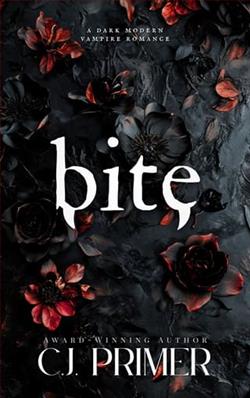Page 11 of Crimson Sin
She crosses her arms again, lips pressing into a line. “I don't like vague.”
“And what would you prefer? A detailed explanation of my family's expectations? The politics of inheritance? The burden of tradition?”
She considers this, her head tilting slightly. “Actually, yes. If you want me to pretend to be your wife, I think I deserve to know what I'm walking into.”
I lean back in my chair, studying her. Most people would accept the vague answer and move on, too polite or intimidated to push. But not Naomi. She has the curiosity of a true academic and the backbone to pursue uncomfortable truths.
“My mother recently passed,” I begin carefully. “She left certain conditions in her will.”
“What type of conditions?” she presses.
“The type that require a wife to fulfill.”
Naomi shakes her head, a small smile playing at her lips. “That's incredibly old-fashioned.”
“My mother was an incredibly old-fashioned woman. She believed in tradition, stability, and the appearance of propriety.”
“And you don't?”
The question takes me by surprise. “I believe in pragmatism. If appearing married serves my purpose, then I'll appear married.”
“But not actually married,” she clarifies.
“Not unless it becomes necessary.”
She picks up her lemonade and takes a sip, her eyes never leaving mine. “What was she like? Your mother?”
The question hits deeper than I expected. I haven't spoken about my mother to anyone outside the Bratva since her death. Even then, the conversations were about business, succession, and maintaining power. No one has asked about her as a person.
“Formidable,” I answer after a moment. “She built Obsidian Vault from nothing. Turned it into a global operation. She was brilliant, and ruthless when necessary, but fair.”
“She sounds impressive,” Naomi says softly.
“She was. She also had very specific ideas about how things should be done. About legacy and the importance of appearances.”
Naomi nods slowly. “And she wanted you married.”
“She wanted me settled,” I correct. “Anchored. She believed that unmarried men were unpredictable, and they made decisions based on impulse rather than wisdom.”
“Was she right?”
I consider the question. “Perhaps. I've certainly made my share of impulsive decisions.”
“Like offering to fund my exhibit in exchange for a fake marriage?”
"Like that, yes,” I reply, a small smile appearing on my lips.
She laughs softly, the sound surprising us both. “At least you're honest about your impulses.”
“I try to be. It saves time.”
“Tell me about your father,” she requests.
The topic shift is subtle but significant. She's probing, trying to understand the family dynamics that led to this moment. I respect the intelligence behind the questions, even as they venture into territory I rarely discuss.
“He died when I was very young. Three years old.”
Her expression softens. “I'm sorry, Daniil.”















